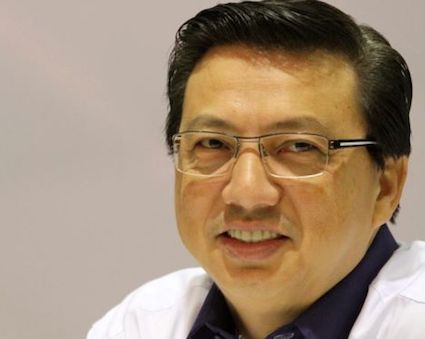What it means to be Chinese

The basic Chinese character traits are drilled into our consciousness from a young age. We have to be determined and we have to work hard, nurture our entrepreneurial instincts, and respect our elders without shedding our nationalistic fortitude. This makes the Chinese independent and pragmatic, and most importantly, proud of their accomplishments.
Liow Tiong Lai, The Star
THE adage “Still waters run deep” certainly holds true for the Chinese. They are by nature hardworking, independent, resilient and proud.
I’m grateful my parents are still celebrating life in good health because they remain a constant reminder of my ancestry and roots.
We were poor but armed with a steely determination to advance our station in life.
When we were children, my three brothers and two sisters accompanied my mother in the deadly dark silence of the early morning hours to tap rubber before being packed off to school.
All of us shared the household chores, washing and ironing our clothes, and cooking our meals. It kept us grounded and together.
Our stone-simple mantra was to persevere – even when the odds were stacked against us. When confronted with financial difficulties, we made huge sacrifices so that we could continue our schooling.
And so, armed with hand-me-down clothes and books, we shared the spoils and marched to the same tune until we finished school.
We did okay, really. We went on to further our studies and mapped out our future with an unyielding ambition.
My family was not the exception. The Chinese are an industrious people. For more than 600 years in Malaysia, they assimilated with the other races – while retaining their deep-rooted identity – to build a multicultural Malaysia.
There was a time in the not-too-distant past when we were colour blind. We worked and played together. We had meals in each other’s homes. We respected each other’s customs, traditions and religions.
But things are changing. There are always people who thrive on dissent and seek to fan the embers of discontent.
We must find strength in our diversity instead of allowing unscrupulous parties to divide us through exploitation.
Like other countries with mixed communities, Malaysia is a melting pot of shared cultures, values, and religions – and I think that’s what makes us special.
The basic Chinese character traits are drilled into our consciousness from a young age. We have to be determined and we have to work hard, nurture our entrepreneurial instincts, and respect our elders without shedding our nationalistic fortitude. This makes the Chinese independent and pragmatic, and most importantly, proud of their accomplishments.
These traits have augured well for the Chinese in Malaysia. The Chinese have had to endure blind spots and financial hardships. But despite these missteps, they persist in their singular goal to achieve success while contributing to the building of this nation.
They are an inextricable part of the Malaysian fabric, and their role in the country’s growth and prosperity cannot be undermined.
The Chinese have also played a vital role in stamping the Malaysian mark in the global arena with success across multiple disciplines – the arts, science, technology, education, sports and enterprise.
In the 61 years since Independence, the Chinese have continued to prosper. Sure, there have been growing pains along the way.
But at every turn, we forge ahead and learn that by working together, we are able to achieve our unique Malaysian way of life as we know it.
It is for this reason that representation of all the components that fashion our multicultural and multiracial society must continue to be defended in the Government. It must be inclusive and never divisive.
This cultural diversity in Malay-sia also gives us a distinctive edge. Visitors to our fair country often marvel at the way we coexist peacefully; we are the best ambassadors of our way of life.
All of us play nice in the sandbox and share a collegial relationship.
Criticism is common in any society and some use it as a measure of our development.
However, only constructive criticism will serve in nation building, and in this case, the success of our multicultural society.
Consensus is extremely important when making critical decisions as it will impact all stakeholders. The Chinese are significant stakeholders considering their centuries-old history in this country. Their voices and views must be heard and taken into account in any design to push Malaysia forward.
This year, as we prepare for GE14, it’s time to rethink what it means to be Chinese. We – the Malays, Indians, Chinese, Eurasians and the indigenous people – are different and yet the same when it comes to characterising our identity as Malaysians without forsaking our roots. It’s our only hope for national unity.
Prior to Malaysia’s independence, the Malays, Chinese and Indians fought hard to retain our respective native languages, despite English being the dominant language at that time.
We struggled together to achieve independence, through our representation in the MCA, and marshalled our forces communally with the Malays and Indians to actively participate in nation building.
At present, we share the same values and goals working jointly with 13 component parties to serve the Malaysian population. This is the success formula of Brand Malaysia.
We have travelled a long and arduous journey to where we are now. We are moving forward, and not backwards, as some parties claim. Malaysia has moved on from a developing nation to a developed nation.
We must stand united by our national flag, our national anthem and our national language. Our Malaysian identity and patriotic allegiance has to be framed by our harmony.
Negaraku, Malaysia.
Datuk Seri Liow Tiong Lai is MCA President and Minister of Transport Malaysia.

